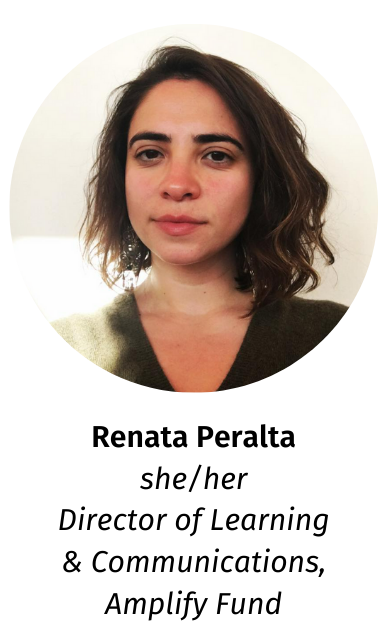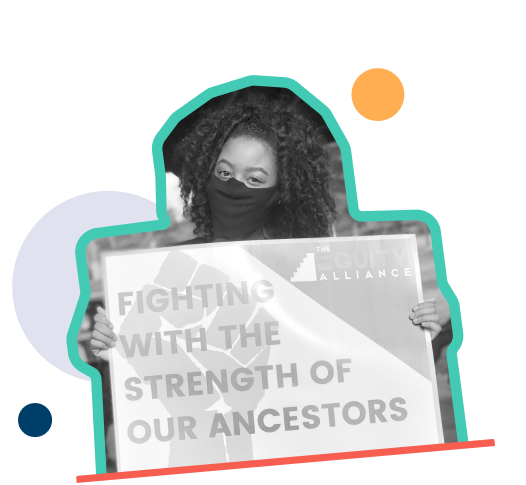
I am so excited to join NFG’s Amplify Fund team. Amplify, a funder collaborative, has organized local, regional, and national funders to distribute over $8 million in power building grants to Black, Indigenous, people of color and low-income organizations.
As the Fund’s inaugural Director of Learning and Communications, my skills with research, evaluation, and messaging are critical; however, I am particularly looking forward to bringing my experience in labor organizing to this role.
I have been a part of three unionized workplaces (as a public-school teacher, in city government, and at Open Society Foundations). I have also helped organize nonprofit workers. Participating in these institutions provided me with four guiding principles that are applicable (and truly essential) to philanthropic work focused on racial justice and power building.
1. Develop clear messages and practice saying them out loud. Labor organizers spend a lot of time collecting stories, crafting talking points, and training workers to deliver consistent and clear messages. This ensures that workers are equipped to combat false narratives. It also “inoculates” workers against messaging tactics used to sway them against their own interests. Like Amplify’s grantees that deal with a slew of toxic narratives about individualism, white supremacy, and limited government responsibility, those of us who work in philanthropy deal with toxic narratives about wealth, scarcity, meritocracy, and accountability. To truly change the sector, we need to develop and practice messages that offer an alternative view and neutralize harmful narratives.
2. Regularly track information and use it. Every labor organizer has experience developing a spreadsheet that lists out the workers in an organization, their issues, their stance on unionizing, and which actions (“structure tests”) the worker has participated in. This spreadsheet gives the organizers a sense of the current situation and helps them develop a strategic path forward. I use this concept with grantees to understand their work, and we can use this tool for funder organizing to identify activists and leaders who are challenging the status quo in the field of philanthropy.
3. Find the actual leaders and fully support them. In labor organizing, a leader is someone respected by many. Someone who can move people. Not necessarily the person in charge or the person with the loudest voice. Some of us in philanthropy regularly challenge traditional ideas of leadership by asking ourselves: Who are the lesser-known leaders in places or issue areas that we fund? How can we find them? And how can we support them with leadership development training, capacity building support, and opportunities? However, it’s also worth asking who the leaders are within foundations, and how we can find and support them. We need them engaged if we are serious about changing philanthropy.
4. Invest in relationships. Lastly, a theme that is common in organizing is the importance of relationship building. I have been spoiled in philanthropy. I have worked on portfolios — first at Open Society Foundations (with the Open Places Initiative) and now at Amplify Fund — that place full trust in local groups and commit to supporting these groups for a long time. This, in turn, allowed me to get to know people beyond working relationships. It is these relationships which are essential for change in local communities and in philanthropy.
I am thrilled to apply these lessons learned to Amplify Fund’s work.
You can hear more about my story organizing in philanthropy for greater transparency and equity in NFG’s National Convening plenary panel on Accountability & Philanthropy's Role. In the meantime, I hope to build (or continue to build) relationships with all of you. To connect with me directly, email me at renata@nfg.org.
Always,
Renata Peralta
Director of Learning and Communications, Amplify Fund
